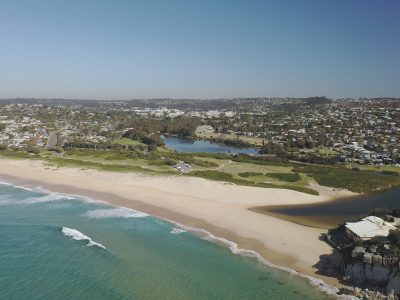Coasts and Legal Systems

The legal framework for environmental law as articulated by James Thornton in his book ClientEarth, refers to enforcement as the fifth stage. This follows four stages consisting of science leading to policy to law to implementation. This fifth stage may in all likelihood involve reference to some form of litigation the results of which may in turn intersect with earlier stages, in particular with policy and changes to legislation depending on the outcome of litigation or recommendations from the inquiries. Opportunities this year to be party to all five stages has made me more aware than ever on how important it is to understand and embrace the approaches and procedures that each stage requires from the various professionals who become part of the decision making process.
In Australia we have a range of ways in which our legal systems operate to help resolve disputes or other issues that arise in management and land use planning within coastal areas. In previous years I have participated in Land and Environment Court (LEC) cases in NSW as an expert witness. But this year I have served as the Respondent in several cases on behalf of the Transitional Coastal Panel. In the role as Chair it has been my pleasure to also be part of conciliation proceedings in the LEC. I do not wish to comment here on the specifics of the cases, but rather on the experience of the process. In addition, I have appeared before the South Australian Royal Commission dealing with the Murray Darling Basin Plan (MDBP) and the Commonwealth Water Act.
There is a fundamental difference between the more adversarial processes of the LEC and the inquisitorial way a Royal Commission operates. Many would be familiar through broadcast of the financial services Royal Commission of the way Senior Counsel leads a witness through a series of questions to elicit an understanding of issues. At times the Commissioner will intervene with questions and in the case of the one dealing with the MDBP this was quite frequent. I appeared with three others in what was termed a “hot tub” representing the Wentworth Group. Senior Counsel knew I was anxious to speak about end-of system problems, that is estuary and open coast. He wanted me to expand on Nick Harvey’s submission; Nick was excused from appearing. The transcript records the interchange as the Commission sought from me an explanation on what the best available science could tell them about the Coorong Lower Lakes and Murray Mouth in the MDBP. Here we could follow the Thornton stages of science (or failure to use it), on policy (neglect of coastal processes), to law (a provision in the Water Act that can be shown to be in error), and implementation with continued dredging of the Murray Mouth. Senior Counsel and the Commissioner gave me every opportunity to explain myself thus expanding on the submission from the Wentworth Group.
Experience this year at the LEC in several cases has not required me to appear as a witness. The adversarial process does involve submissions, including the development over time of facts and contentions and a set of conditions. All this involves extensive discussions with solicitors, officers of OEH, and barristers. It is time consuming and rigorous as well as creating masses of paper. As the cases involved the role of the old Coastal Panel as a consent authority it was necessary for me as Chair to be present to answer questions and in legal terms to “give instructions”. But in field inspections, and discussion with the “other side”, and in the court room, it is the senior barrister who does the talking. This is one of those situations where I have to learn to shut up. One admires the skill of these legal folk in using the knowledge we offer them along with all the other matters discovered as part of the proceedings.
Our legal system is vital in not just sorting out disputes but revealing weaknesses in the way law has been written and policies applied. Both in Commissions and in court cases, it is possible to learn how we can improve.
Bruce Thom
Words by Prof Bruce Thom. Please respect the author’s thoughts and reference appropriately: (c) ACS, 2018, posted 27 September 2018, for correspondence about this blog post please email austcoastsoc@gmail.com
#120


 Moods of Sydney Harbour
Moods of Sydney Harbour